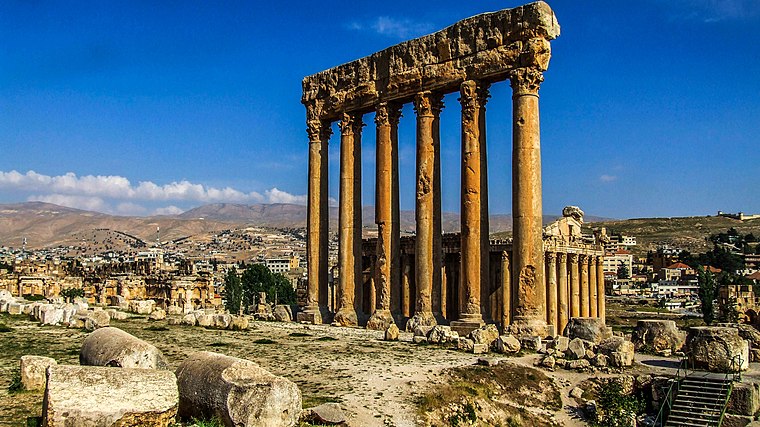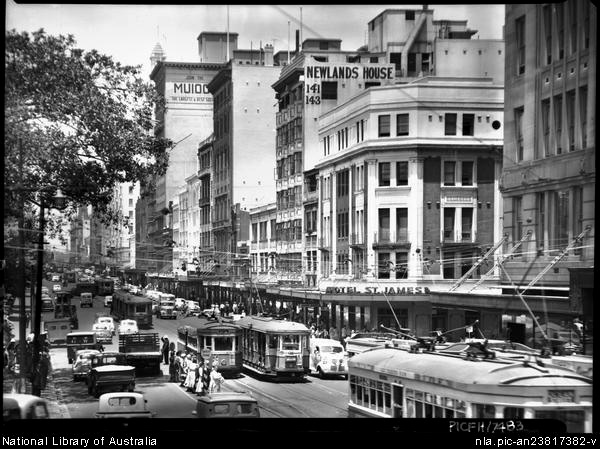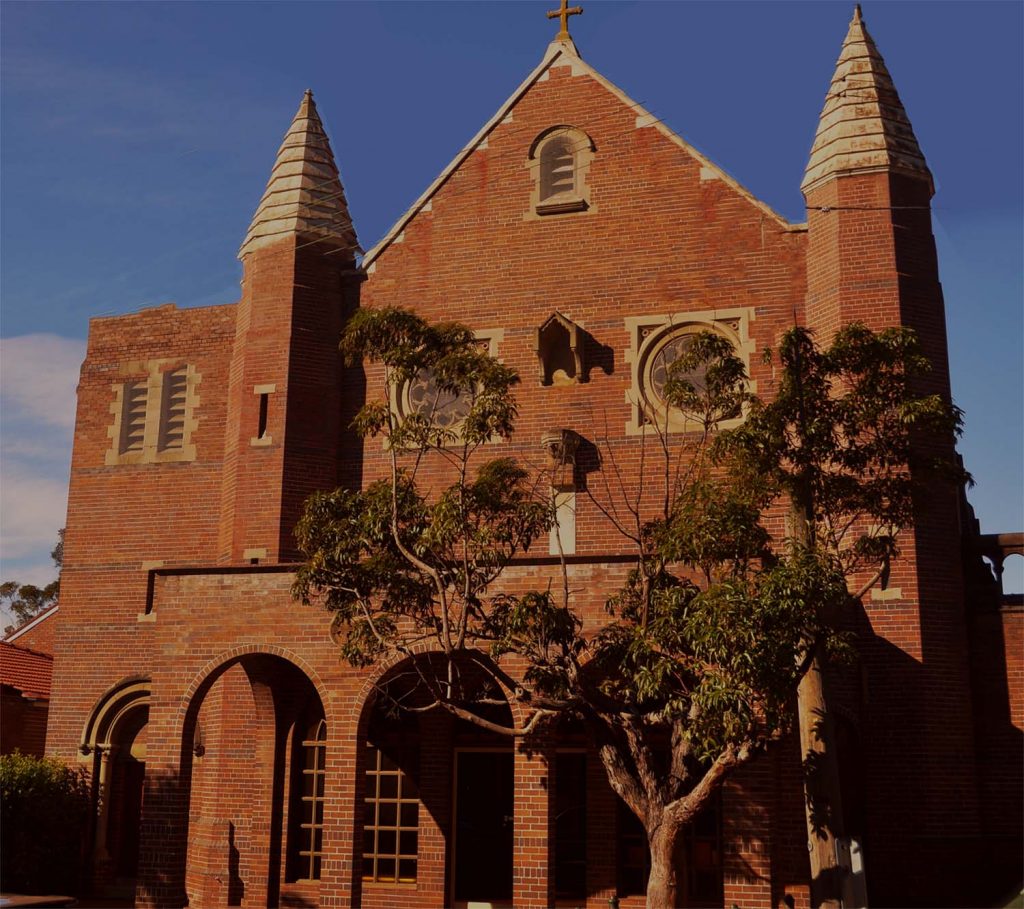Khalil came to Australia in 1950 from Lebanon.
Through hard work Khalil created a chain of shops selling men’s suits (“a shirt and a tie with every suit!”). Khalil brought employment to many Australians. Khalil provided for many Australians their first suit! Khalil sponsored many family members from Lebanon, providing them with jobs, helping them buy houses.
Khalil was generous, not only with the Melkite Church in Australia, but with the Church generally, making major financial contributions which have greatly assisted particular projects.
Khalil had only a modest education at a village school in Lebanon, but was a person of great intelligence, indeed wisdom. To meet Khalil, he was hospitable, modest, unassuming. Khallil was open to persons of different backgrounds, and saw the best in others.
Khalil never forgot his native Lebanon. Khalil was nourished by his Melkite faith, Khalil became part of the success story of modern Australia, which welcomed migrants from many different places.
Khalil’s spouse, Jeanette, died on 23 November 2018. Khalil and Jeanette have two sons, Anthony and Luke.
Early Life

A few months ago, I sat down with Khalil, and asked him about his early life.
Khalil Herro believes that he was born on 15 May 1925. However, he may, in fact, have been born in 1928!
Ain Bourday
Khalil was born in a small village called Ain Bourday, near the ancient city of Baalbek, in the Bekaa Valley, Lebanon. When Khalil was born, Ain Bourday, had a population of about 100 persons, coming from four families, related to each other in one way or another.
House
When Khalil was growing up, the family comprised his parents, together with 12 children, all of whom lived in a three room house. Mats were put down to sleep on at night, and then rolled up during the day.
The house was split between the three rooms in which the family lived, and the other side of the house where the animals were kept. The house in which Khalil and his family lived, was the only house in the village that had running water.
Khalil and his family lived about 100 metres from the Church. Khalil went to Mass on Sundays but on other days of the week, Khalil and his siblings worked on the small farm. Khalil’s father grew grapes which he would sell. If there were grapes that he could not sell, he would make and sell wine.
The Church was a Melkite Church but the Maronites also used the Church for their liturgy, as did the Orthodox. Khalil always got on well with people in the village who were Maronite or Orthodox.
Khalil’s father owned a farm near the village. Khalil’s family lived entirely from what was produced on the farm. On the farm were chooks, cows, camels, horses, sheep and donkeys. The donkeys were used to carry equipment to sow seed.
Khalil had seven brothers and four sisters. After Khalil came to Australia in 1950, Khalil’s parents remained in Lebanon, as did one brother and one sister. Khalil was the third eldest child in the family. The remainder of Khalil’s siblings moved, over a period of time, to Australia.
Growing up, Khalil did know something about Australia because an Aunt lived in Australia. Khalil’s Aunt wrote to his parents on a regular basis. Through those letters Khalil learned something about Australia. Khalil’s Aunt married someone from the Scarf family.
Education
Khalil attended school until he was about sixteen years old. The school which he attended was located next to the Church. Khalil left school when he was 16 because by that stage, there were 14 people living in the family home. The farm properties could not support 14 people.
When Khalil was growing up, Lebanon was run by the French.
British Army
Khalil and his brother, Peter, commenced working for the British Army which had taken over from the French. Khalil and Peter worked for the British Army for about four years. Khalil and Peter lived in army barracks. They were paid once a fortnight. They always gave their pay to their mother and father, because the family needed the financial support.
Khalil very much enjoyed his time working for the British Army. Whilst Khalil was working for the British Army he learned how to speak English. Khalil was treated very well by the British Army. Whilst Khalil was working for the Army, he was able to observe the way the British did things, and compared it to the way that the Lebanese did things! Khalil decided that he much preferred the way the British did things!
After Khalil ceased working for the British Army, he worked as a builder, constructing, mainly houses.

Australia
Khalil and his brother, Peter, decided to come to Australia in 1950. They travelled to Australia by ship. Khalil and Peter initially arrived in Freemantle. After a couple days in Freemantle, Khalil and Peter took another ship to Sydney.
Khalil’s father borrowed money in order for Khalil and Peter to come to Australia. Khalil’s father borrowed the money from a money-lender. The interest rate was 12% per month. Khalil and Peter saved every penny they could and sent the money back to their father in Lebanon, so their father could re-pay the loan.
Khalil and Peter arrived in Sydney on a Thursday. The next day, Friday, they were helping a relative, building shelves in a shop, and placing stock on the newly constructed shelves.
Both Khalil and Peter were very happy to have left Lebanon.
Shop Fitter
Between the time of Khalil’s arrival in Sydney, and opening his first shop, Khalil worked as a shop fitter. Khalil bought a van not long after he arrived in Sydney because he needed a vehicle to transport his equipment, and to get to jobs quickly.
Clothing Business
Khalil’s cousin, Reuben Scarf, who was born in Australia, had a store in Leichhardt which sold suits. Khalil worked in that store for a time. Khalil later became a partner in the store, as did Peter. Together, Khalil and Peter opened a number of stores. The stores catered for persons who needed suits but were not able to afford the more expensive suits sold in stores such as David Jones. The stores were very successful.
A factory which was situated near the centre of Sydney manufactured the suits. Shirts and ties were sourced from overseas. Khalil’s brother, Peter, usually did the buying trips.
Khalil and his brother, Peter, were the first of their parents’ children to come to Australia. Khalil and Peter both spoke English. Peter’s English was originally better than Khalil’s. In 1972, the federal government abolished tariffs on clothing imports. At that stage Khalil got out of manufacturing.

Jeanette Herro
Khalil’s spouse is Jeanette Herro. Unfortunately, she passed away on 23 November 2018. Jeanette was born in Australia. Jeanette was brought up in the Catholic faith, but was, of course, not a Melkite. Khalil was introduced to Jeanette by a mutual friend. Jeanette’s parents lived in Queensland but holidayed in Sydney. Jeanette’s father and grandfather were both schoolmasters. Jeanette herself was a schoolteacher.
Khalil was the first person in his family to marry someone who was not Lebanese. Khalil was fortunate in that his family were not judgmental, and welcomed Jeanette into their family. Jeanette was very good to Khalil’s family. They just clicked with each other, even though Jeanette did not speak any Arabic. Khalil considered himself the luckiest man in the world to have married his wife, Jeanette.
Concord
Khalil bought his first house in Concord in 1958. Over time, three of Khalil’s sisters, came to live in Australia. Each sister lived in Khalil’s house in Concord. Jeanette took Khalil’s sisters under her wing. Khalil’s sisters only left the home in Concord when they got married.
Initially, each family member who came to Australia from Lebanon, worked in the family business, whilst they established themselves in Australia, before going on to other things.
Strathfield
Khalil’s family moved to Strathfield when his son, Anthony, was about 3 years of age. He was just able to walk when they moved. Khalil recalls an incident involving Anthony and the family dog. Khalil was not paying sufficient attention to Anthony. So, Anthony decided to take the dog for a walk! There is some debate as to whether Anthony took the dog for a walk, or whether the dog took Anthony for a walk! When Khalil realised they were gone, Khalil’s brother, Peter, helped him look for Anthony and the dog. Fortunately, they found Anthony and the dog making their way to the old house in Concord!
According to Khalil, he has the best of sons, Anthony and Luke. Khalil is proud of both of them. As a father, Khalil thanked God every minute that he has such good sons.
Come to meet Khalil angels of the Lord! Receive his soul and present him to God the Most High.
Michael McAuley
Thursday 7 September
